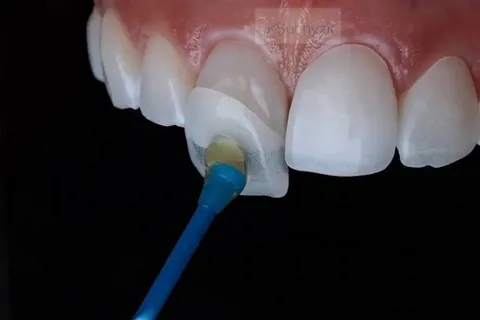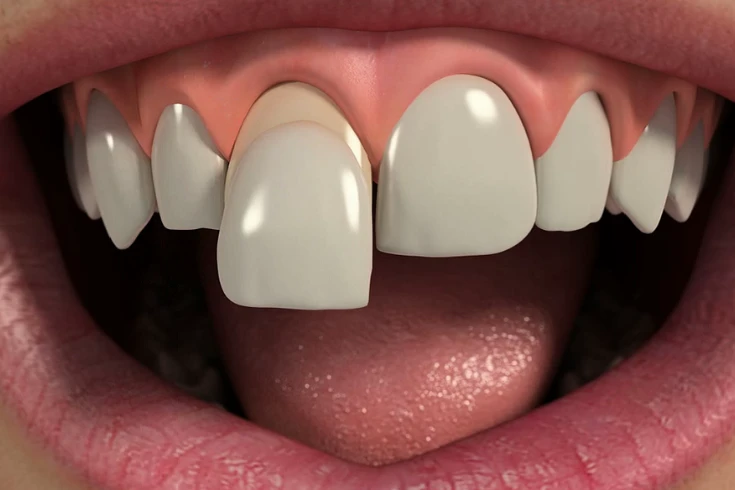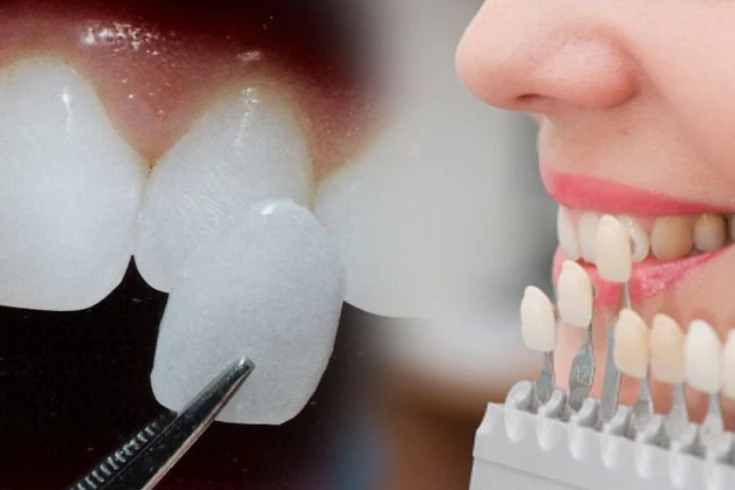Composite veneer a dental veneer popular for any individual who is looking to improve their smile in a conservative and less expensive way. Whether for aesthetic purposes or just slight dental imperfections, costs, insurance, and benefits should be considered when opting for cosmetic dentistry. In this comprehensive guide, we will discuss in great detail the intricacies of composite veneers, including how much composite veneers cost with and without insurance and point you in the right direction to decide whether they are right for you.
What is a Composite Veneer?
Composite veneers are thin shells or layers of tooth-colored composite resin material applied to the front surface of your teeth. They are meant to make your smile look nicer by improving such aspects as miscolored teeth, chipped or cracked teeth, minor misalignments, misshapen or unevenly shaped, and gaps between them. Unlike porcelain veneers, composite can be placed in a single visit, with little preparation of the natural tooth.
The Cost of Composite Veneer with Insurance
As cosmetic treatments, dental insurance rarely covers composite veneers. Of course, there are exceptions for those instances when the procedure is deemed necessary because the teeth involved were damaged either by trauma or caries. If it does cover a portion of the treatment, then this may involve the following: –
- Costs of Diagnosis: X-rays and consultations.
- Restorative Treatments: Filling cavities in preparation for the procedure.
For those with coverage, the composite veneer cost with insurance can be reduced significantly. For example, if a composite veneer costs $1,000 per tooth and your insurance covers 50% of eligible costs, you’ll pay $500 per tooth out of pocket.
Read More: How Much Do Veneers Cost?
Composite Veneer Cost without Insurance
Without insurance, the cost of composite veneers becomes unaffordable for many people. So, most dental practices have financing available or set up a payment plan to make the treatment more accessible. Some dental practices offer discounts for upfront payments or for treating multiple teeth at one time.
You will have to pay the full price without insurance, which ranges between $250 and $1,500 per tooth, based on the mentioned factors above. It is important to choose a reliable dental clinic that offers transparent pricing in order not to have any unexpected expenses.
What are the factors affecting the cost of Composite Veneers?
One of the major factors that makes composite veneers appealing is their relatively low cost compared to other cosmetic dental procedures such as porcelain veneers. Composite veneer cost will depend on several factors including:
- Location of dental practice: The cost of dental care varies significantly depending on your geographic location. Major city practices charge more compared to those in less urban areas.
- Dentist Expertise: An accomplished cosmetic dentist will usually increase the fee based on his or her level of experience, but in most cases, it will be well worth it, considering the money you paid.
- Number of Veneers: The overall cost is determined by the number of teeth veneers you will require.
- Dental Work Scale: Most teeth require extra preparation, such as fillings or shaping; therefore, increasing its price.
The average cost of the composite veneer ranges from approximately $ 250 to $ 1,500 for one tooth. This, however depends on many of the factors listed above.
Benefits of Composite Veneers
Composite veneers have several advantages in comparison to other cosmetic dental procedures, making them a great alternative for many patients. Therefore, here are some benefits:
- Affordability: As stated above, composite veneer costs are significantly lower as compared to porcelain veneers, making it accessible to more individuals.
- Fast Procedure: Unlike porcelain veneers, which can entail many visits, composite veneers often can be applied in a single visit.
- Minimally Invasive: Composite veneers usually require the least amount of enamel removal, thus preserving more of your natural tooth structure.
- Reversibility: It is far less invasive if for any reason you should want to have the composite veneers removed in the future compared to porcelain options.
- Aesthetics Customizable: It is possible for the dentist to match the composite resin with your existing tooth color in order to give it a natural look.
- Reparability: Unlike porcelain veneers, which are completely replaced if damaged, composite veneers can often be repaired and, therefore, not entirely replaced.
Alternatives of Composite Veneers
If you’re considering composite veneers, it’s essential to compare them to other cosmetic solutions:
| Feature | Composite Veneers | Porcelain Veneers |
| Cost | $250 – $1,500 per tooth | $1,000 – $2,500 per tooth |
| Longevity | 5-7 years | 10-15 years |
| Durability | Less durable | These veneers last long. |
| Application Time | Single visit | Multiple visits |
| Maintenance | Easy repairs | Requires full replacement |
While porcelain veneers may provide longer-lasting outcomes, these cost and convenience make them a popular option for many patients.
How to Afford the Cost of Composite Veneers?
Following are a few ways to afford composite veneer cost, especially if you don’t have insurance:
- Look for financing options: Many dental practices offer payment plans or partner with third-party financing companies that help patients spread the cost over time.
- Shop around: Get quotes from multiple dental clinics to find a provider in your budget without compromising quality.
- Consider Dental Schools: Dental schools usually offer procedures at lower costs, performed by monitored students.
- Use Health Savings Accounts: The bright side of this is that, if you happen to have an HSA or FSA, you may use those resources to pay off the cost of these veneers.
- Discounts: Some clinics tend to offer specific discounts for cash-on-hand or multiple teeth treating on one visit.
Conclusion
The composite veneers are flexible, economically friendly options for that shining smile. Knowing the costs of composite veneers, both with and without insurance, will enable you to make an informed decision about your dental care. Even though dental insurance does not always cover cosmetic procedures, options to manage those costs-like financing plans and discounts-will be offered. Be it minor imperfections or an overall change in the outlook of a smile, composite veneers present absolutely stunning results without making one go bankrupt. Consult your options with a trusted cosmetic dentist today and take a step toward that inspired smile.
FAQ’s
What are composite veneers?
Composite veneers are thin layers of tooth-colored composite resin applied to the front surfaces of teeth to improve their appearance. They are commonly used to fix issues like discoloration, minor misalignment, chipped teeth, or gaps between teeth.
How much do composite veneers cost?
The cost of composite veneers typically ranges from $250 to $1,500 per tooth, depending on factors such as location, dentist expertise, and the extent of dental work required.
Are composite veneers covered by insurance?
In most cases, dental insurance does not cover composite veneers because they are considered a cosmetic procedure. However, insurance may partially cover them if they are needed for restorative purposes, such as repairing a damaged tooth.
What is the composite veneer cost with insurance?
If insurance covers part of the procedure, the composite veneer cost can be significantly reduced. For example, if your insurance covers 50% of the cost, you may only need to pay $500 for a veneer priced at $1,000.




